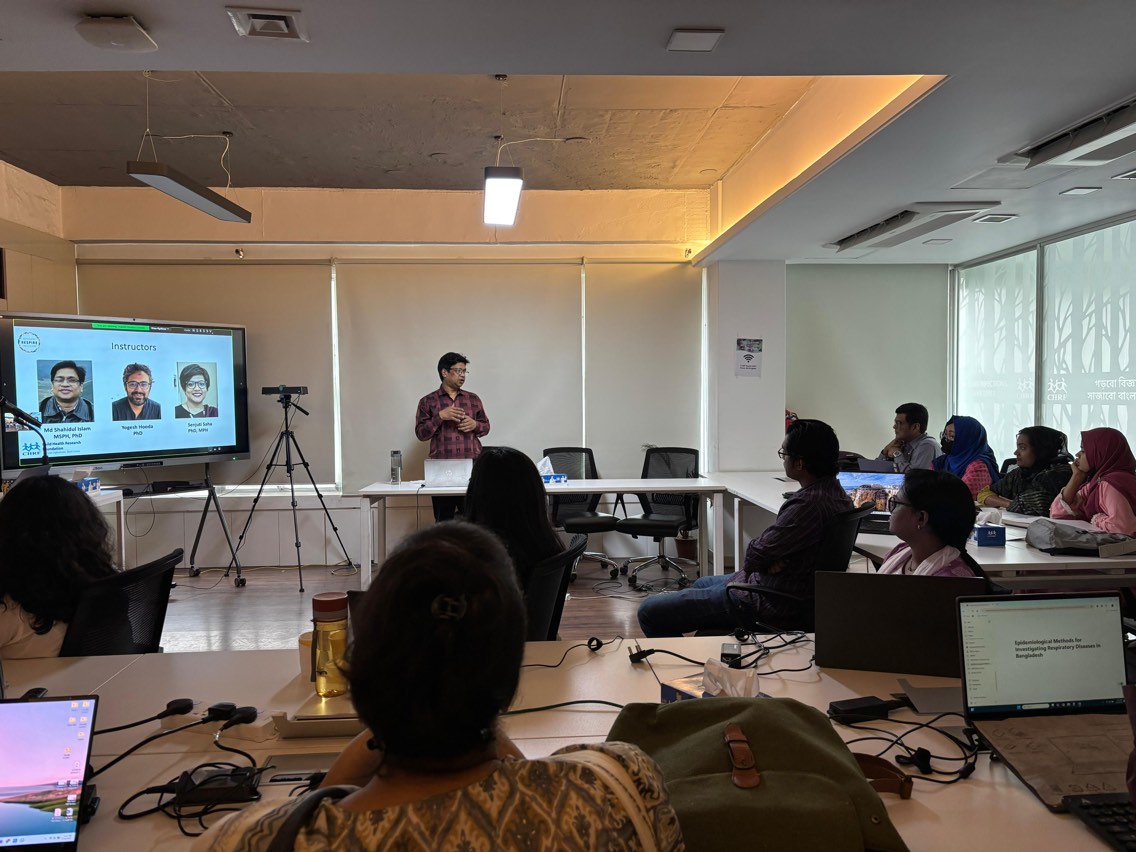
This 3-day course introduces early-career CHRF researchers to the scientific method, ethical research practice, and project management fundamentals.
This 3-day course introduces early-career researchers to the scientific method, ethical research practice, and project management fundamentals. The curriculum uses CHRF’s ongoing projects, such as typhoid surveillance, RSV epidemiology, bacterial genomics, and bacteriophage research, as case studies to ground research concepts in practical, contextually relevant examples.
Through a blend of lectures, literature review and presentations, and assignments, participants will gain hands-on experience in formulating research questions, understanding study design, ethical approval processes, data management, and translating findings into impactful outcomes for public health.
By the end of the course, participants will be able to:
- Describe the stages of the research process and apply the scientific method.
- Formulate well-structured research questions and hypotheses with a focus on infectious diseases and public health.
- Distinguish between major study designs (cross-sectional, case-control, cohort, experimental).
- Understand and apply research ethics principles, including informed consent, data confidentiality, and authorship integrity.
- Apply project management tools (e.g., Gantt charts, risk registers, reporting templates) to design and monitor research activities.
- Critically interpret research papers and datasets.
- Collaboratively develop a mini-proposal relevant to CHRF’s ongoing research programs.
Additional Course Elements:
Reading Material: Selected scientific papers will be provided for each group.
Take-home Assignments
10,000 BDT* (approximately). Scholarship will be provided to all selected members.
*All program fees are subject to 15% VAT as per the policy of the Government of Bangladesh.